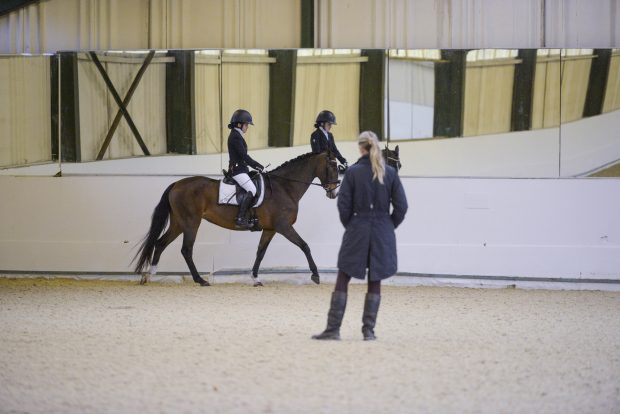View horses for sale
More articles on buying horses
Q: I am looking to buy a schoolmaster-type eventer but, in order to try out a new ride, I inevitably find myself jumping an unknown horse, possibly of significant value.
I obviously cannot assess the suitability of the horse without jumping him, but, if an accident should occur while trying out a new horse, who would be liable?
Is insurance available? Am I being overcautious?
CD, Derbyshire
You are not being overcautious at all, as things can, of course, go wrong when riding a strange horse. But David Buckton of South Essex Insurance Brokers (SEIB) advises checking both parties’ insurance beforehand.
“Most of us, when looking at a horse with a view to purchase, will want to try it out,” said David.
“It is certainly worth finding out whether the owner has any insurance. Most equine policies provide cover for other people riding the horse with the owner’s permission.
“If, for example, the owner had a policy with veterinary fee cover, and an injury requiring veterinary attention occurred while you were trying the horse, costs should be recoverable from the policy.”
According to David, if a trial of the animal were to be extended, for example if the owner allowed you to take the horse home for a month, it would be strongly recommended that you, as the intending purchaser, took out a policy in your name, assuming no insurance was already in force.
“SEIB is quite happy to insure animals in these circumstances – it would be sensible to include veterinary fee cover, public liability and loss of use in the policy,” said David.
“Then, if the purchase goes ahead, you have got your own insurance in place. Should the horse prove unsuitable, and you return it, you can cancel the policy.
“In these circumstances, you would receive a proportionate return of the premium or, if the premium is being paid by instalments, future payments can be cancelled, subject to you not making any claim on the policy.
“At SEIB, we calculate return premiums on a strictly pro-rata basis, less a nominal administration charge; however, you should check the terms with your chosen insurance company.
“You don’t say whether you’re going to have the new horse vetted, but it is sensible to do so. If taking out a new policy on a valuable horse, the insurance company will probably want to see a veterinary certificate anyway,” he said.
Information
SEIB Tel: 01708 850000 www.seib.co.uk
This Q&A was first published in Horse & Hound (2 July, ’09)
Find horses for sale near you
Looking for more articles on buying horses?
Buying a new horse? Compare insurance prices at horseandhound.co.uk/insurance




